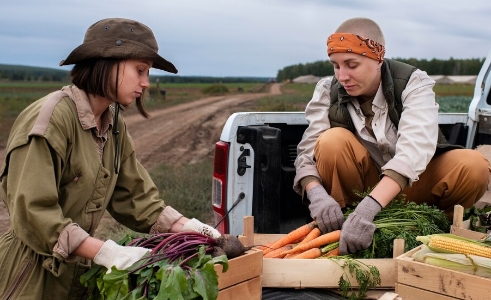Finding seasonal farm jobs in Europe as an immigrant offers a unique opportunity to earn money, gain new experiences, and explore different cultures. Europe’s agricultural sector relies heavily on seasonal workers, especially during harvest periods. However, the process of securing such jobs can be challenging for immigrants due to visa requirements, local regulations, and competition. By understanding the process and using the right tools, you can successfully find work and enjoy the benefits that come with it.
Work Permits and Visa Requirements
Before starting your job search, it’s crucial to understand the visa requirements of your target country. Citizens of the European Union (EU) or European Economic Area (EEA) have the advantage of not needing a visa or work permit to work in other EU countries. Non-EU citizens, however, must apply for a seasonal work visa or permit. Many countries, such as Germany, Spain, and Italy, offer specific seasonal worker visas for agricultural jobs. Check with the embassy or immigration office of the country you’re interested in for specific regulations.
Choose the Right Country
Some countries in Europe are more renowned for seasonal farm jobs than others. Spain, Italy, France, Germany, and the Netherlands are particularly well-known for their agricultural sectors. Spain offers jobs in olive and citrus fruit picking, while Italy’s vineyards and olive farms are in need of seasonal workers. France is famous for its vineyards and vegetable farms, and Germany often hires workers for asparagus and strawberry harvesting. Research which crops are in demand and in which season to time your applications correctly.
Job Search Platforms and Agencies
Several online platforms are available to help you find seasonal farm jobs in Europe. Websites like EURES (European Job Mobility Portal) list job opportunities across the EU. Other websites such as Seasonworkers.com and Agrojob Denmark also specialize in seasonal agricultural positions. For those interested in volunteering, platforms like WWOOF (World Wide Opportunities on Organic Farms) and Workaway offer opportunities to work on farms in exchange for food and accommodation.
If you prefer to work with an agency, many recruitment agencies across Europe specialize in hiring foreign workers for farm jobs. These agencies often assist with visa applications and job placements, making the process easier for immigrants.
Direct Applications to Farms
In addition to using online platforms and agencies, you can also contact farms directly. Many farmers hire seasonal workers through personal networks or direct inquiries. Use websites like FarmStayPlanet to find lists of farms offering seasonal employment or volunteering positions. Sending a direct application can increase your chances of finding a job, especially in more rural areas.
Learn Basic Language Skills
While many farm jobs don’t require advanced language skills, learning basic phrases in the local language can be a big advantage. Whether it’s Spanish, French, or German, knowing simple greetings and work-related terms can help you communicate better with your employer and fellow workers.
Final Thoughts
Securing a seasonal farm job in Europe as an immigrant can be a rewarding experience, but it requires careful planning and preparation. By understanding visa requirements, choosing the right country, and using various job search platforms, you can find opportunities suited to your skills and needs. Being open to hard work, flexible with timing, and prepared for physical labor will improve your chances of success, making your time in Europe both profitable and enjoyable.
